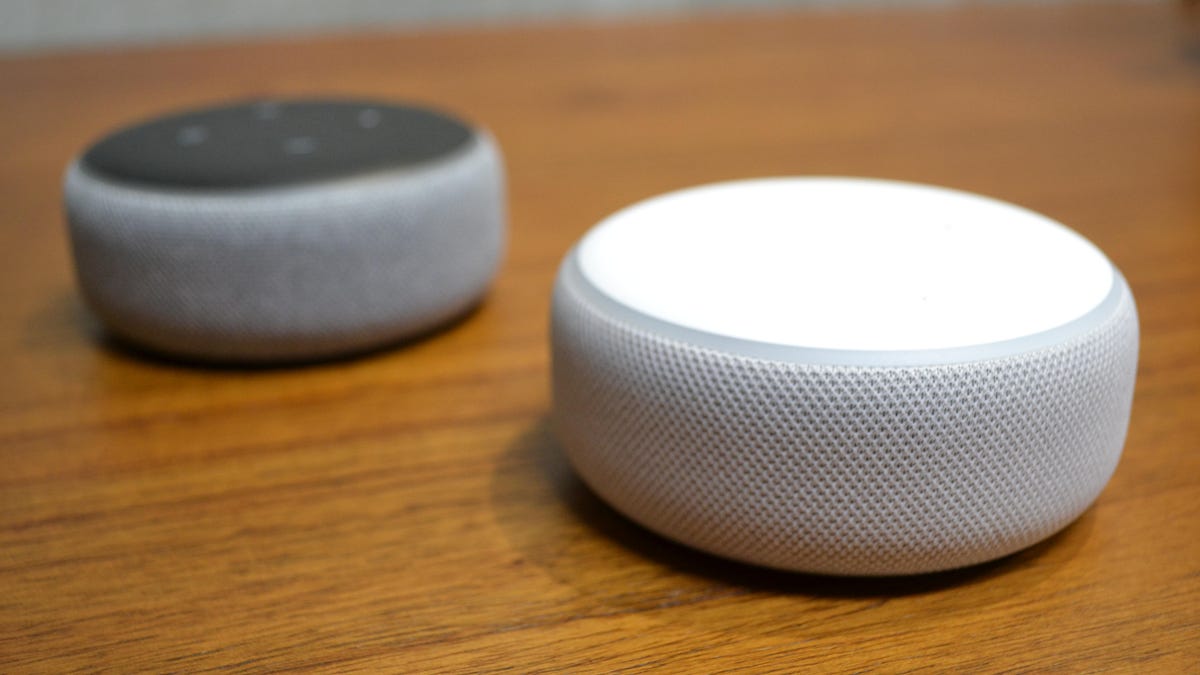 Why You Can Trust CNET
Why You Can Trust CNET Amazon's voice assistant will get smarter. These new Alexa Prize teams will help
Amazon unveils the latest class of Alexa Prize competitors, who will set out to make conversational bots.

The Amazon Echo Dot wants to talk.
Someday, you may ask Amazon's Alexa about the weather in Miami and that query will quickly flourish into an extended conversation with the voice assistant about booking weekend getaways there.
That kind of back-and-forth dialogue with any digital assistant isn't possible today, except in limited settings, like asking for local movie times. But Amazon is working on this very big concept of chatting with a robot with the help of its Alexa Prize Socialbot Grand Challenge, a competition among colleges to build the best social bot.
On Wednesday, the Alexa Prize unveiled its latest class of colleges for its third year of competition. The announcement coincided with the kick off of Amazon's inaugural re:MARS science and tech conference in Las Vegas.
Here are this year's competing schools:
- Carnegie Mellon University
- Czech Technical University in Prague
- Emory University
- Moscow Institute of Physics and Technology
- Stanford University
- University of California, Davis
- University of California, Irvine
- University of California, San Diego
- University of California, Santa Cruz
- University of Michigan
"We are very early," Rohit Prasad, the head scientist for Alexa's artificial-intelligence team, said in an interview. "While there's been progress over the past two years, I think we're at least five to eight years away before we can meet the ultimate goal of having a real, coherent and engaging conversation for 20 minutes with any of these bots."
The Alexa Prize is part of Amazon's broad mission of making its voice assistant smarter, more human-like and more conversational, so it can become more useful and engaging for its users. The benefits of creating a better digital assistant could be huge. It could allow Amazon to have a technology millions of customers rely on, helping it sell more smart speakers and products through voice shopping, while also helping it capture useful data about its users. But, Amazon isn't alone in this pursue, with Google, Apple and Samsung all working on their own assistants.
Also, with consumers focusing more on their data privacy, Alexa may face a less receptive audience in the future, no matter how clever it becomes.
Prasad said the Alexa Prize is already paying dividends in a number of ways. First, the prize is helping familiarize and inspire the next generation of computer scientists and engineers with voice computing. Also, concepts from past years' social bots have served as inspiration or mirrored some of the predictive and conversational elements Amazon has already introduced into Alexa.
Lastly, the longer-form conversations customers have with Alexa as part of the competition have already helped Alexa get smarter. The assistant is typically fed short bits of dialogue that involve a request and an Alexa response. The Alexa Prize offers a useful way of training the artificial intelligence on more substantial conversation, Prasad said.
To take part in the Alexa Prize, consumers can simply say, "Alexa, let's chat," to talk to a social bot. The newest group of social bots will become available in September.
Prasad said the audio from these conversations is never shared with the competing schools and consumers are able to delete these chats if they want. Text transcripts are provided to the schools to help them improve their bots.
Applications for this year's competition came in from 15 countries. University of California, Davis, which was last year's winner, was automatically allowed to enter this year's competition without having to apply again.
The selected schools will receive research grants from Amazon, Alexa team support and Alexa-enabled devices to complete their work. Last year's winner received $500,000. Czech Technical University in Prague, another repeat entrant this year, received a second-place prize of $100,000 last year.

